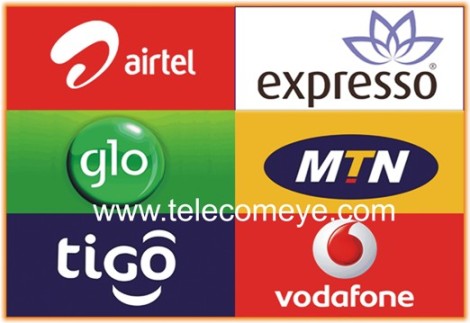 The year 1996 may be described as a seminal point in the history of telecommunications in Ghana because it represents two important milestones in the country: the NCA was established to regulate the orderly development and operation of efficient communications services, and Scancom Limited, under the trade name Spacefon, commenced operations, launching GSM services in Ghana.
The year 1996 may be described as a seminal point in the history of telecommunications in Ghana because it represents two important milestones in the country: the NCA was established to regulate the orderly development and operation of efficient communications services, and Scancom Limited, under the trade name Spacefon, commenced operations, launching GSM services in Ghana.
In the two decades since those groundbreaking moments, mobile phones have become a critical part of our daily lives, impacting our work, health, education, entertainment, social activities and other important parts of our lives. As we enjoy the unbridled benefits of mobile devices, it is easy to underestimate what it takes to ensure the underlying infrastructure that makes it possible to do the myriad activities we undertake on our mobile phones: network planning and investment.
Around the time Spacefon launched services in 1996, the Company’s network included 15 sites and equipment from Ericsson covering Accra and Tema. By 1999 the Company had extended its network to six additional cities and continued to expand its network.
Scancom continued investing through its evolution from Spacefon to Spacefon Areeba, and then Areeba, and by time MTN took over in 2006, the Company was supporting 2.5 million subscribers with a 2G network that included approximately 900 base stations. Today, MTN has increased that number to 2,500 operational cell sites.
MTN has continued to invest, expanding and upgrading the network to 3G from 2009, deploying over 5000 km of nationwide fibre-optic connections to its cell sites and adding three state-of the-art switching and data centres. The fibre network is recognized the world over as a progressive innovation in telecommunications technology that provides enormous bandwidth required to support tremendous growth in data traffic. MTN has since taking over in 2006, poured over $2.5 billion into network and information systems investments to improve coverage and enhance capacity. The company has also invested in the West African Cable System (WACS) which changed the face of MTN’s service delivery in the country.
In 2016 MTN plans to spend a further $96 million in network and information systems investments.
In 2013 MTN began the modernization and conversion of its infrastructure to an IP-based future proof network. This was consistent with innovations in infrastructure deployment and technology evolution. The Company has also implemented HSPA mobile broadband systems in the 900 MHz band (UMTS900) in order to make quality data available to many rural communities which was the first in Africa. Significant investments have also been made in deploying an advanced IP/MPLS (Internet Protocol/ Multi-Protocol Label Switching) network to increase transmission speed, improve network redundancy and capacity positioning it for unrivalled network quality and efficiency.
MTN is doggedly keeping pace with global technological trends and upgrades. The Company has outpaced its competitors by being the only mobile operator to launch 4G services, following the award by the National Communications Authority (NCA) of provisional authorization to offer mobile broadband services in the 800MHz band to MTN Ghana in February 2016. MTN has since deployed and operationalized over 450 4G LTE sites across the ten regional capitals of Ghana, key border towns and select district capitals. MTN acquired the 4G license for $67.5 million, and an additional $18 million of the total capital expenditure of $96 million earmarked for 2016 is targeted at deploying 4G infrastructure.
MTN has the widest, most robust 2G, 3G and 4G coverage across the length and breadth of Ghana, thanks to its investment strategy and a dedicated Technical Team.
The MTN technical team has the expertise and commitment to achieve the Company’s objective to deploy an unparalleled state-of-the-art communications network that meets the ever-changing demands of subscribers. Tapping into the Company’s core values of Leadership, Integrity, Relationship, Innovation and Can-Do, as well as the cultural values of Candour, Accountability, Collaboration and Get-It-Done, the three divisions that make up the technical team – Network Group, Information Technology and Capital Projects – efficiently collaborate to plan and implement strategy and mitigate challenges.
Combining technological trends with learnings from usage patterns and demand, as well as input from their commercial and stakeholder counterparts, the Technical Team manages a portfolio that includes the following:
- Growth : continually modernizing the network — rollout of new technology sites and capacity provisioning in the Radio Access, Core and Transport Networks (Fiber, microwave and IP/MPLS)
- Support : Critical daily operations, maintenance and upgrade activities for network hardware and software
- Business Optimization: Enhancement of existing monitoring and capacity management systems and transformational activities.
- Innovation : Introduction of new innovative and out of the box technological solutions in addition to existing ones to deliver excellent customer experience, robust and cost effective services.
- Defensive : Providing additional redundancies in the transport and core networks.
While doing all these, they have had to overcome challenges such as power disruptions and fluctuations (all cell sites require power to operate) battery thefts (batteries provide backup against power disruptions), permitting delays (permitting required for infrastructure deployment and fiber cuts (fiber cuts chiefly by construction contractors remain an impediment to continuous network expansion quality enhancement).
MTN Ghana’s unrivaled commitment to the provision of reliable services is evidenced by the measured response to overcoming these challenges: the deployment of anti-theft solutions, site monitoring and access controls to mitigate battery theft; implementation of measures to reinforce the protection of existing fiber infrastructure and institution of preventive measures for new fiber roll out, as well as robust communication and sensitization of all relevant stakeholders which are all directed at reducing the incidence of fiber cuts; investment in alternative power arrangements to support network uptime in times of power shortage, including investment in Direct Current) and hybrid power solutions to ensure reliable power supply to cell sites; and the willingness of members of the Technical team to surmount personal discomforts like heavy rain, and driving vast distances on unmotorable roads to ensure the network is functional to offer excellent customer experience.
As telecommunication services evolve, so will MTN. The journey thus far could not have been possible without a commitment to consistent network infrastructure investment and the dedication of a loyal staff.





